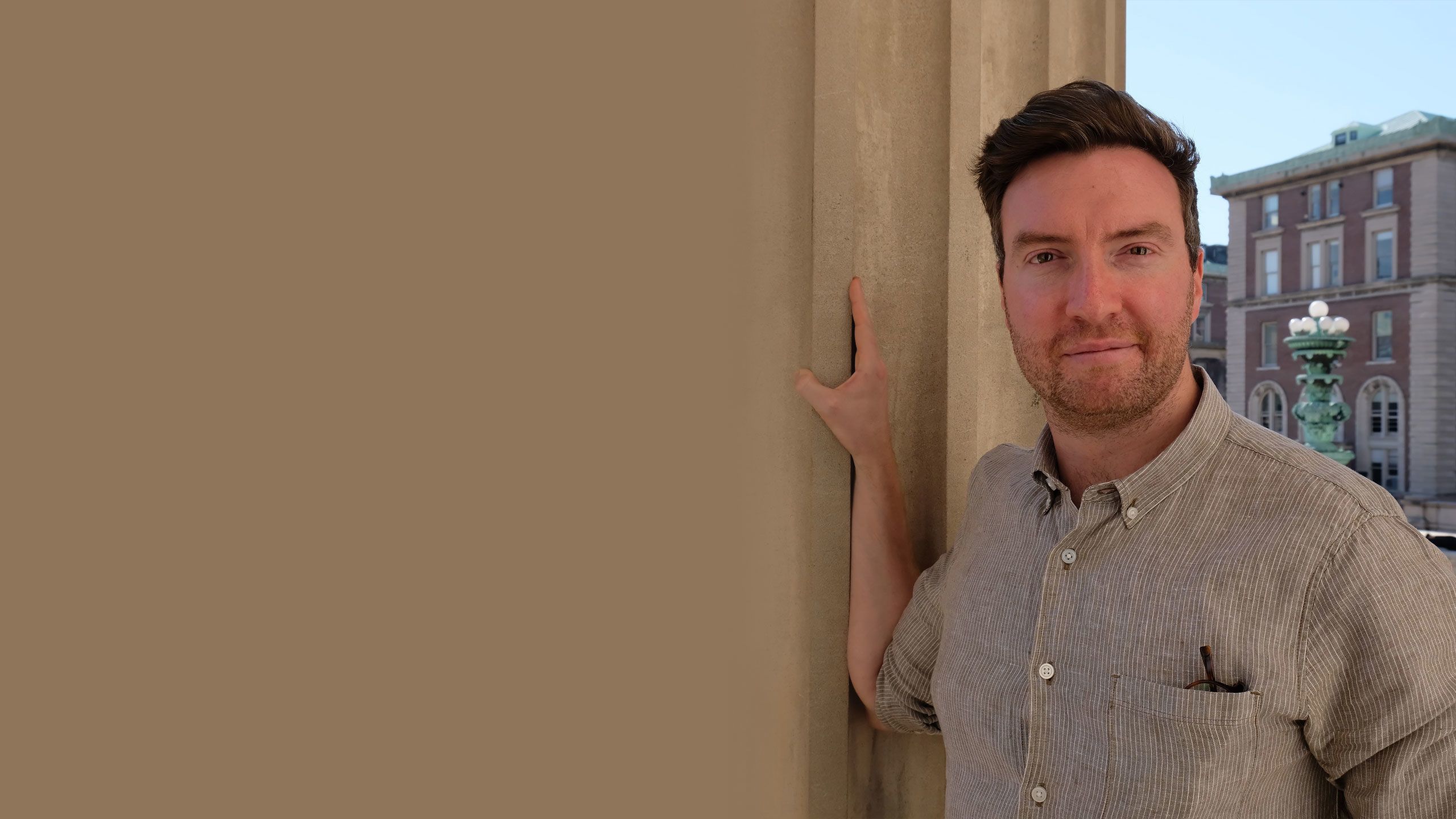A Place in the Pantheon
Rutgers University–Camden Historian, Evan Jewell, Earns Rome Prize

Rutgers University–Camden historian Evan Jewell has earned a place in the pantheon.
For more than a century, the American Academy in Rome has awarded the Rome Prize and Italian Fellowships to support the work of innovators in the arts and humanities. The assistant professor of history is one of 38 American and four Italian artists and scholars—all in the early or middle stages of their careers—given the 2022-23 “gift of time and space to think and work.” The fellows will each receive a stipend, workspace, room, and board at the academy’s 11-acre campus on the Janiculum Hill in Rome, from September 2022 to July 2023.
Jewell becomes the first Rutgers University–Camden professor—and the first Rutgers University professor while a member of the faculty—to earn the distinguished award. “We applaud the extraordinary work of Dr. Evan Jewell, who has reached the pinnacle in the study of ancient history,” said Rutgers University–Camden Chancellor Antonio D. Tillis. “The international community is now recognizing the amazing scholarship and teaching that Rutgers–Camden students in his Ancient Rome and Western Civilization courses have been privy to.”
Rome Prize winners are selected annually by independent juries of distinguished artists and scholars through a national competition encompassing a range of disciplines. “This year’s Rome Prize winners and Italian Fellows represents the diversity of the United States, and their projects build on the academy’s commitment to the global impact of the arts and humanities,” said American Academy in Rome president and CEO Mark Robbins. “These fellowships are transformative, and we look forward to seeing the ways this experience is translated in the work to come.”
Jewell was selected for the Rome Prize in part due to his one-of-a-kind book project, “Youth and Power: Acting Your Age in the Roman Empire (149 BCE - 68 CE),” a work-in-progress which represents a new way of studying the ancient history of youth, age, and aging in the Roman world. The ambitious project combines the use of many different media, such as coins, sculpture, literary texts, and graffiti. Moreover, it adopts a new framework that views age as “something that is and was performed,” much like gender, Jewell said.
“Basically, I'm asking how did young Roman men ‘act their age’ (or not) at different times in Roman history,” he said. “I'm also extending the project to look at how the fascist regime in Italy under Mussolini attempted to revive and appropriate some of these Roman age prescriptions for their own youth groups. In the process, I hope to join the growing chorus of scholars aiming to interrogate the dark legacy of ancient history in the modern world.”
The Philadelphia resident said that earning the highly competitive fellowship was a “dream come true” and a “once-in-a-lifetime opportunity” that will allow him to focus on his work unlike any other fellowship. “You live with all of the other fellows in Rome, have meals cooked for you by the academy's kitchen five days a week, and have 24-hour access to their world-class library,” he said. “It’s an opportunity to see things and gain access to materials that you might not otherwise.”
In addition to researching and penning his book in local libraries, Jewell plans to visit special collections in museums, such as the Vatican, as well as several fascist sites where youth groups were headquartered. He also looks forward to forging professional collaborations and friendships during his year there. “The opportunity to break bread and share ideas with artists, architects, scholars, musicians, and more will really help me to think in new ways about my book project as well as future projects,” he said.
The history professor hopes that, in turn, the professional connections he makes in Rome will return with him to his Rutgers–Camden classroom—whether that is through guest Zoom appearances or by introducing his students to others’ work. He noted that he is already planning a study abroad opportunity with his Rutgers–Camden colleagues highlighting a Roman site in Spain. He also wants to make connections for students with the summer school at the American Academy in Rome. “I want to open as many doors for Rutgers–Camden students as I can,” he said. “In the long run, I really want our students to see the possibilities that exist for them at a place like the American Academy and in Rome itself.”
